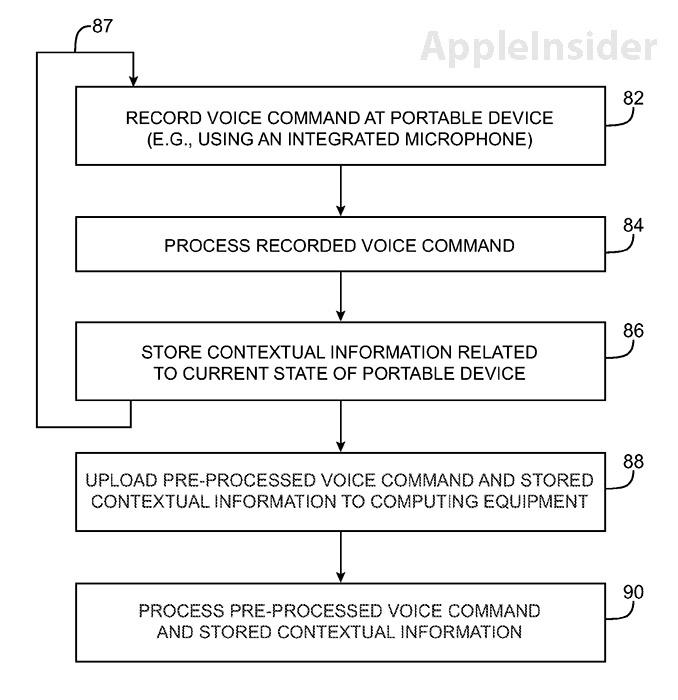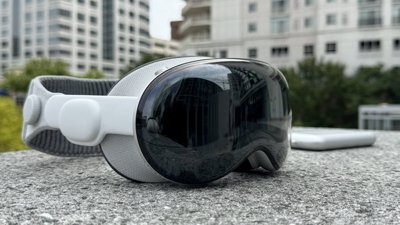Apple on Tuesday was granted a patent for technology that offloads voice commands with contextual information to an off-site computer for processing, one of the key features that allows the company's Siri virtual assistant to operate.
While not specifically named in U.S. Patent No. 8,296,383 for "Electronic devices with voice command and contextual data processing capabilities," the invention is closely associated with how Siri operates and may be, at least in part, powering the voice-recognizing assistant.
First filed for in 2008, well before Apple purchased Siri in 2010, the patent describes a method and system in which a portable electronic device like the iPhone records a voice command and corresponding contextual information. The iPhone then sends the data to an off-site server for processing, which either responds to the voice command or sends back information to the handset that allows the device to execute the command.
At the time, some of Apple's iDevice products used on-board voice commands to play music, tell time, or in the case of the iPhone, call contacts. While useful, the system was limited to certain operations due to the processing power and storage requirements necessary to respond to advanced user commands.
With the advent of fast data networks, Apple's patent allows for more sophisticated commands to be off-loaded from the device and carried out remotely in near real-time.
Key to the invention is contextual information, which is referred to as metadata, regarding the operating state of the device. For example, a user can perform an operation to look for more songs like the one that is currently playing on the handset by saying, "Find more like this." Another example would be location data, which can be used to "find nearby American restaurants," or similar commands.
It is not known if the '383 patent's technology is being used as a basis for Siri, however the virtual assistant is known to work in much the same way. Apple recently filed a patent application for the features that power Siri, including the ability to recognize conversational input.
 Mikey Campbell
Mikey Campbell







-m.jpg)






 Marko Zivkovic
Marko Zivkovic
 Malcolm Owen
Malcolm Owen


 William Gallagher
William Gallagher
 Amber Neely
Amber Neely
 Sponsored Content
Sponsored Content


-m.jpg)






20 Comments
INB4 Android fanboy whine
Sadly these patents don't mean that much anymore, after reading the other article, the patent office can reverse these things willy nilly now i guess :S
Now, I have to say I never liked the idea of sending my every command to a server in the cloud, so maybe this will lead to the happy situation that Apple offers a fabulous service with Siri, and someone else (IBM?) creates a Dragon-like embedded version that works also great.
At least, it will prevent Google from doing the same.
Data processing centres beware! In fact it is obviously a combined way for Apple to harvest and own user data. Who needs Google search now. I quite expect that to be gone in the next year or so too.
Now, I have to say I never liked the idea of sending my every command to a server in the cloud, so maybe this will lead to the happy situation that Apple offers a fabulous service with Siri, and someone else (IBM?) creates a Dragon-like embedded version that works also great.
At least, it will prevent Google from doing the same.
It drives me nuts how much WORSE Siri works for calling people and for launching music than the offline system used to work. I wish they would do something about that!